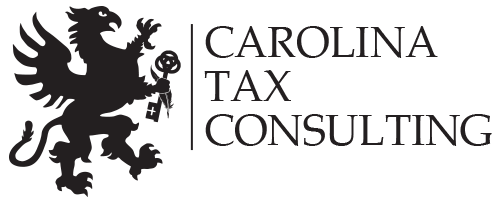Remote Work and Taxes in South Carolina: What You Need to Know

Remote work has reshaped careers, offering flexibility like never before. But with that freedom comes a maze of tax rules that many don’t see coming. If you’re unsure about your tax obligations, consulting a trusted tax consultant company in Fort Mill SC can help you stay compliant and avoid costly mistakes.
Let’s break down the key tax considerations for South Carolina residents and businesses.
Where Do Remote Workers Pay Taxes? It’s Trickier Than You Think
For remote employees, the biggest question is: Which state gets to tax my income?
South Carolina follows a physical presence rule, meaning if you work within the state—even for a company based elsewhere—you must pay South Carolina state income tax on your earnings.
But what if you live in South Carolina and work remotely for a company based in another state? You could face dual taxation, where both states try to tax your income. The good news? South Carolina provides a credit for taxes paid to other states, helping reduce your overall tax burden.
The key takeaway: Your physical work location—not your employer’s headquarters—determines where you owe taxes.
Think You Qualify for Home Office Deductions? Here’s the Truth
Many remote workers assume they can deduct home office expenses, but the reality is more complicated.
- If you're a W-2 employee, you can’t claim a home office deduction—even if you work remotely full-time.
- If you're self-employed or own a business, you can deduct home office expenses—but only if the space is used exclusively for work.
Eligible deductions may include:
- A portion of rent or mortgage
- Utilities (electricity, water, internet)
- Office furniture and equipment
If your home office doubles as a guest room or play area, it doesn’t qualify. So before counting on this deduction, make sure your space meets the strict “exclusive use” rule.
Employers, Are You Withholding the Right Taxes?
If you run a business in South Carolina with remote employees working in other states, your payroll tax obligations might be more complicated than you think.
Some states require employers to withhold payroll taxes based on the employee’s work location, not the company’s headquarters. Others follow a “convenience of the employer” rule, which could require withholding in the employer’s home state instead.
For businesses, getting this wrong can lead to penalties, back taxes, and compliance headaches. If you’re hiring remote workers across state lines, consult a tax professional to avoid costly mistakes.
One Remote Employee in South Carolina? You Might Owe Business Taxes
If your business is based outside South Carolina but has even one remote employee working in the state, you could be creating a taxable presence, also known as nexus.
What does this mean? South Carolina may require your business to:
- Pay corporate income tax if your company is considered to have a significant presence.
- Collect and remit sales tax if you sell taxable goods or services.
Many businesses are unaware that a single remote worker can trigger these obligations. Understanding nexus laws is crucial if you want to avoid unexpected tax bills.
Local Taxes and Business Licenses: The Hidden Cost of Remote Work
State taxes aren’t the only concern—local tax rules also matter.
Some South Carolina cities and counties require business licenses for remote workers, even if the company is based elsewhere. It’s worth checking with your local tax office to avoid penalties for missing a required license.
How to Stay Tax-Compliant While Working Remotely
The tax landscape for remote work can feel overwhelming, but with the right approach, you can stay compliant and avoid unnecessary tax burdens.
- Review state tax laws to determine where your income is taxed.
- Adjust tax withholdings based on your work location, not just your employer’s headquarters.
- Consult a tax professional if you work across state lines or hire remote employees.
- Keep detailed records of your home office expenses, work locations, and business licenses.
Don’t Let Remote Work Catch You Off Guard
Remote work offers flexibility, but it also comes with tax complexities that many employees and businesses don’t anticipate.
If you’re unsure whether you're paying the right taxes—or if your business might owe more than you think—now is the time to consult a trusted tax specialist in South Carolina. With expert guidance, you can avoid tax surprises and focus on what you do best. Carolina Tax Consulting can help you navigate South Carolina’s tax laws, ensuring you stay compliant while maximizing your benefits.
Need expert tax advice? Contact us today for a consultation!
Ready to work with Carolina Tax Consulting, LLC?
Let's connect! We’re here to help.
Send us a message and we’ll be in touch.
Or give us a call today at 803-410-5885
Agency Contact Form
We will get back to you as soon as possible
Please try again later
More Marketing Tips, Tricks & Tools

All Rights Reserved Carolina Tax Consulting, LLC | 302 Tom Hall Street, Suite 2 Fort Mill, SC 29715 (803) 410-5885
Website Managed by Leads By Vinny | Policy & Terms










